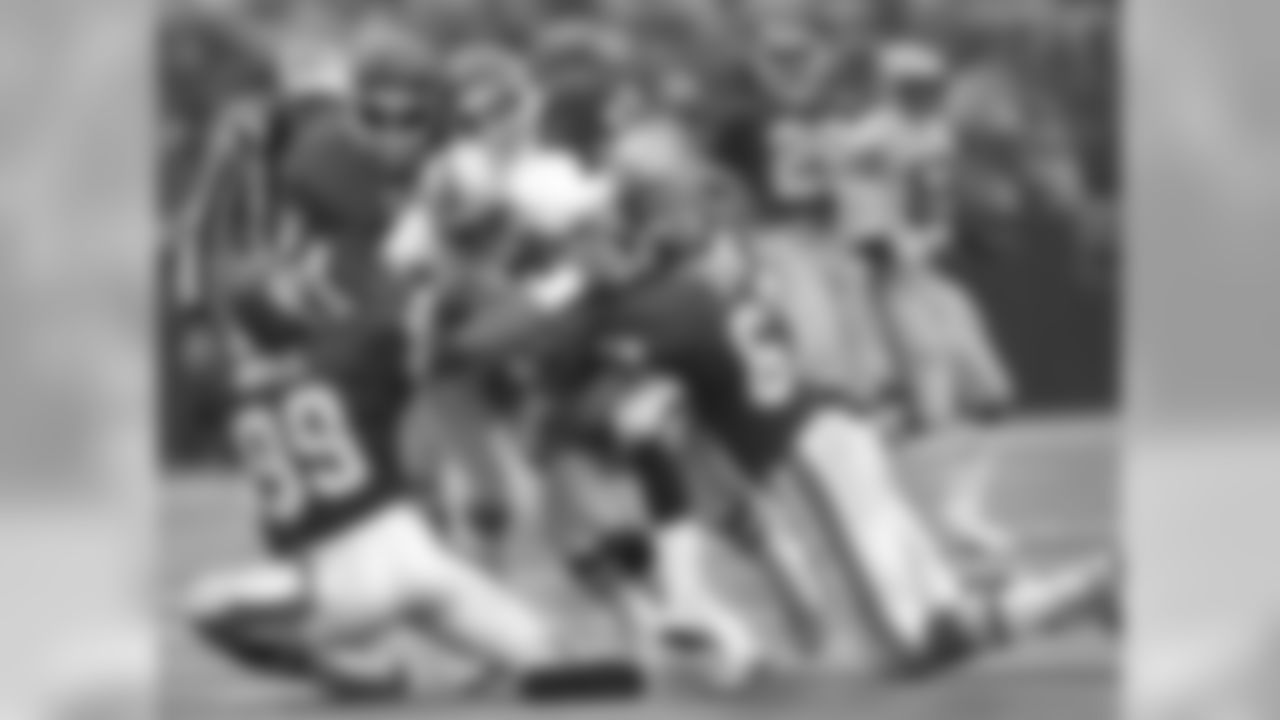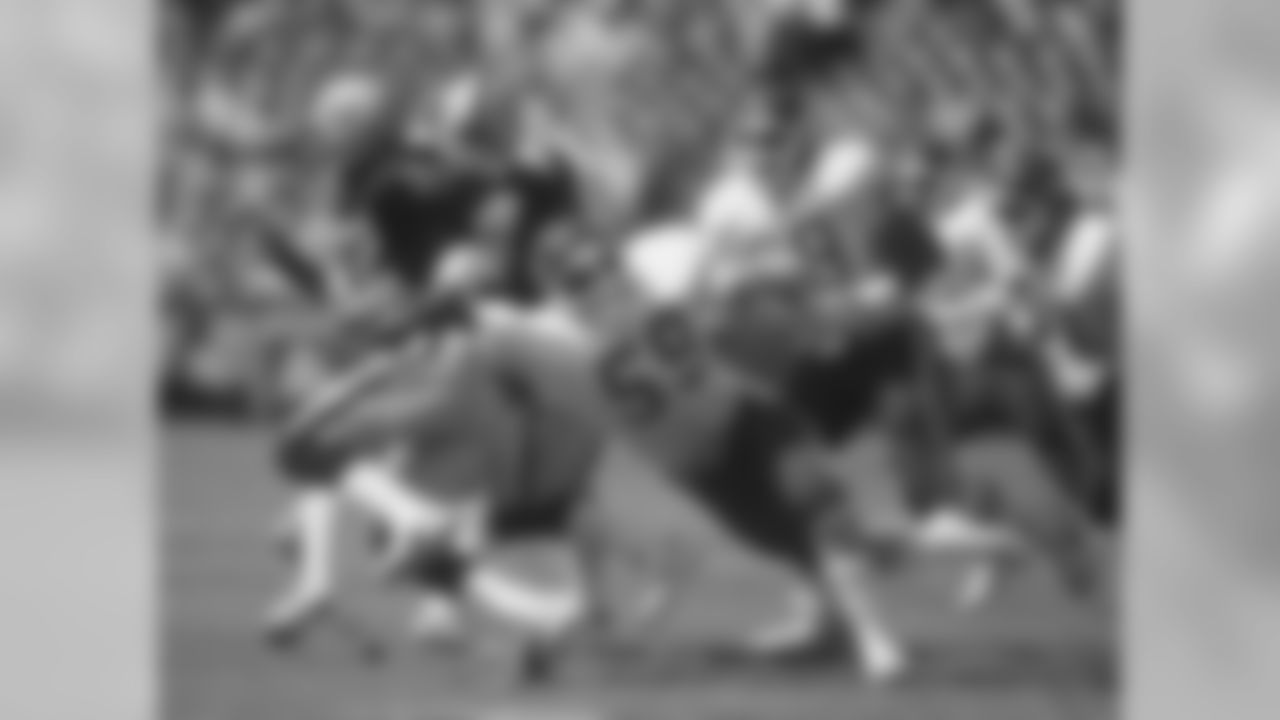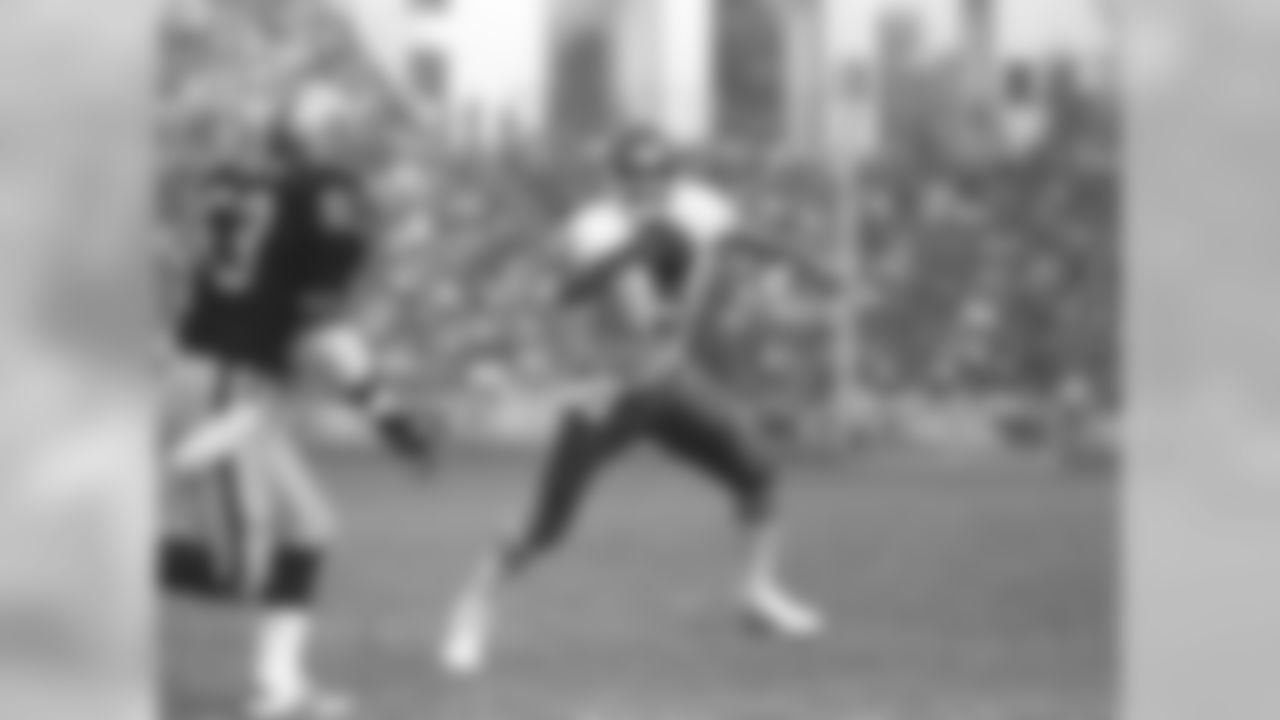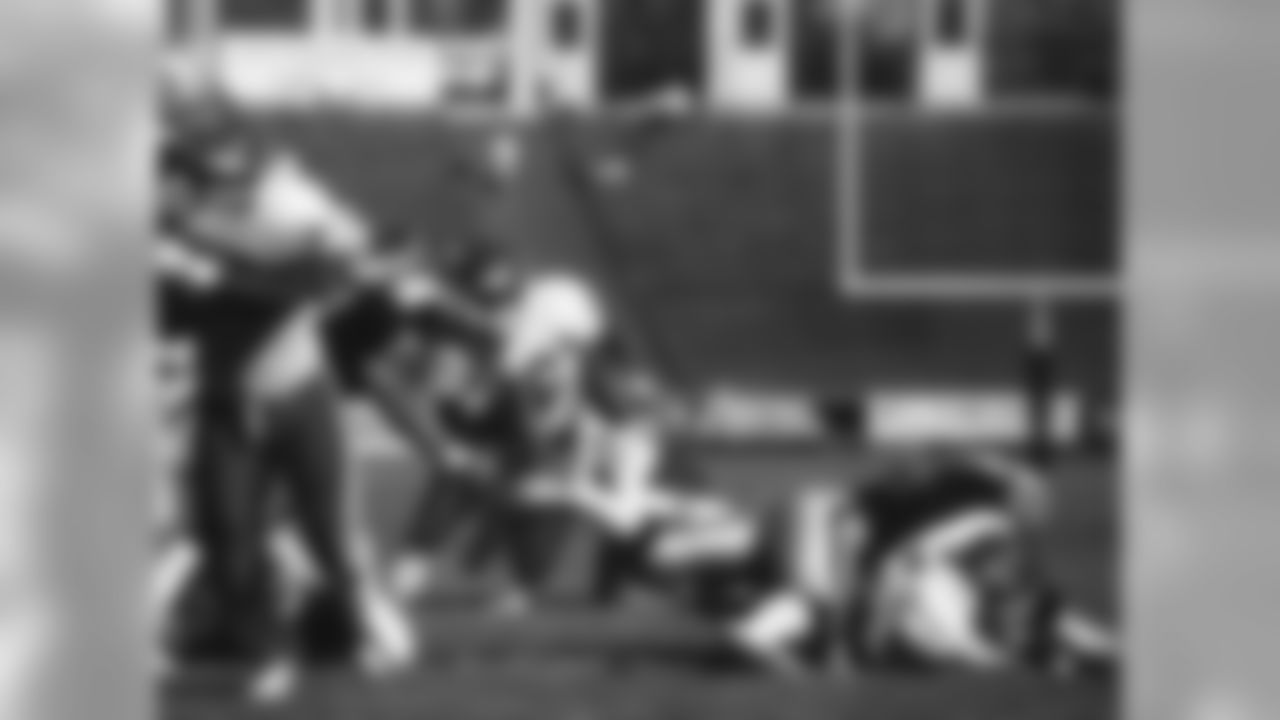Two teams that have a long-standing rivalry, born of disrespect and a mutual dislike for much of what the other has historically been about, meet for the 112th time on Sunday at Arrowhead Stadium.
The Kansas City Chiefs and Oakland Raiders have never gotten along, and even despite the more politically correct times we live in today, the hate is still very palpable among the two fan bases.
This rivalry, perpetuated by one coach's fierce loyalty to his friend and owner, sprinkled with a few franchise-defining trades and free agent moves, developed one of the NFL's most visibly recognized inner-division feuds.
--
The root of this rivalry involves two primary figures in the development of the NFL as we know it today: the Raiders' Al Davis and the Chiefs' Lamar Hunt, and the merger between the AFL and NFL back on June 8, 1966.
At the core, that's where this rivalry started.
But it was 23 years later that a new head coach of the Chiefs would instill a passion for this rivalry that is still recognized by Chiefs fans today.
"Marty Schottenheimer has said more than once that he thought Lamar Hunt was the finest man he'd ever met, and [Marty] viewed Al Davis as disrespectful," Michael MacCambridge, Author of "America's Game" said. "For Marty, [playing the Raiders] became a crusade."
Kevin Ross, who played defensive back for the Chiefs from 1984-1993, remembers clearly what it was like preparing under Schottenheimer during Raider Week.

"[Marty] talked with the most hate I ever heard about another team in my life," Ross said. "He made it very, very personal. We had a very clear understanding of what this Raiders game was going to be about."
Schottenheimer led the Chiefs from 1989 to 1998, and during that timespan the Chiefs won 18 of 21 games against the Raiders.
Former Chiefs president and general manager Carl Peterson explained that it was the attitude the Raiders possessed that also bothered Schottenheimer.
"I always felt even before I came to the Chiefs, the Raiders and their arrogance were something that irritated the Chiefs," Peterson said. "But I can tell you without question, it irritated Marty Schottenheimer."
Current Chiefs equipment manager Allen Wright, who has been with the team for more than 30 years, remembers how Schottenheimer amped things up for Raider Week.
"Everything got turned up a notch," Wright explained. "There were signs in the elevators. There were signs in the locker room just simply stated. 'Raider Week.'"
Schottenheimer's mantra during Raider Week became "disrespect."
"He would take at least 10 or 15 minutes at every team meeting to talk about the disrespect," former Chiefs offensive lineman Tim Grunhard (1990-2000) said. "'They don't respect you. They don't respect you. They don't respect you.' Whether warranted or not, that was the fuel for the fire."
Besides just signs, speeches and a historic connection between the owners, the perception of what the two teams stood for really fueled this rivalry.
"The Raiders had gone about their business the wrong way," Kevin Harlan, the former "Voice of the Chiefs," (1985-1993) said. "They had been a cheap-shot team. They didn't represent the spirit in which the NFL should be played and when [Marty's] team took the field, it wasn't just the Chiefs players playing the Raiders.
"It was the league and what it stands for and the respect that it deserves against these Raiders."
A year before the Chiefs had moved to Kansas City, the "Dallas Texans" had a quarterback by the name of Cotton Davidson, who had the support of then-coach Hank Stram.
"Hank [Stram] liked Cotton, and there was nothing to dislike about Cotton," Bob Halford, the publicity director of the Dallas Texans said. "He had a great arm. He was intelligent and was a good football player."
But when a fifth-year pro who hadn't yet found success in his career and who had already made stops in Pittsburgh (1957-59) and Cleveland (1960-61), arrived in Dallas and began playing well, things changed.
That player was quarterback Len Dawson, who had actually played for Stram while attending Purdue, where Stram had worked as an assistant coach.
Before the 1962 season, Dawson had impressed the Texans' coaches.
"By the end of the training season, it was apparent that [Dawson] was going to be the guy," Halford said. "Once that was established, Cotton (Davidson) became available."
Once Dawson had established himself as the starter, Hunt looked to trade Davidson.
"The Raiders were arguably the weak link in an AFL that was still struggling and they were a team essentially without a quarterback," MacCambridge said. "Lamar [Hunt], always realizing that the league was only going to be as strong as its weakest link, and without Stram's approval, traded Davidson to the Raiders for the rights to Oakland's first-round draft pick in the '63 draft.
"When Hank Stram found out about it, he was furious."
MacCambridge continued.
"The Raiders finished dead last [with Davidson] that season anyway. That first-round pick became the first pick in the 1963 draft and the franchise used it on Junious "Buck" Buchanan."

Buchanan sits in the Hall of Fame as one of the most storied players in franchise history, leading the Chiefs to a 24-7 Super Bowl IV victory over the Minnesota Vikings.
"It certainly set a tone of the franchise owned by Lamar Hunt getting the best of the Raiders," MacCambridge said. "Ultimately, they went ahead and won the AFL championship and got Buchanan.
"It was a glorious fleecing for the franchise and it probably set the Raiders back a little bit further."
--
That wasn't the last connection these two teams would have in regards to players swapping teams.
Three decades later it would be a running back by the name of Marcus Allen, who had grown tired of Davis and the Raiders after 11 years with the organization, who would join the Chiefs.
"Marcus (Allen) was an unrestricted free agent in 1993 and he was looking for a team," former Chiefs president and general manager Carl Peterson explained. "He was watching what we were doing and I kind of knew when I traded for Joe (Montana), that this really made an impact on Marcus.
"He called me and said 'I will tell you two reasons that I want to come and play for the Chiefs.' He said 'Number one, I get to play against the Raiders and Al Davis twice a year,' which I knew, and then he said, 'The other thing is I always wanted to play with Joe Montana and you just made a great trade.'"
Allen joined the Chiefs and immediately connected with Schottenheimer on one very important category.
Kansas City Chiefs vs the Oakland Raiders in the 1980's

Kansas City Chiefs vs the Oakland Raiders in the 1980's

Kansas City Chiefs vs the Oakland Raiders in the 1980's

Kansas City Chiefs vs the Oakland Raiders in the 1980's

Kansas City Chiefs vs the Oakland Raiders in the 1980's

Kansas City Chiefs vs the Oakland Raiders in the 1980's

Kansas City Chiefs vs the Oakland Raiders in the 1980's

Kansas City Chiefs vs the Oakland Raiders in the 1980's

Kansas City Chiefs vs the Oakland Raiders in the 1980's

Kansas City Chiefs vs the Oakland Raiders in the 1980's

Kansas City Chiefs vs the Oakland Raiders in the 1980's

Kansas City Chiefs vs the Oakland Raiders in the 1980's

Kansas City Chiefs vs the Oakland Raiders in the 1980's

Kansas City Chiefs vs the Oakland Raiders in the 1980's

Kansas City Chiefs vs the Oakland Raiders in the 1980's

Kansas City Chiefs vs the Oakland Raiders in the 1980's

Kansas City Chiefs vs the Oakland Raiders in the 1980's

Kansas City Chiefs vs the Oakland Raiders in the 1980's

Kansas City Chiefs vs the Oakland Raiders in the 1980's

Kansas City Chiefs vs the Oakland Raiders in the 1980's

Kansas City Chiefs vs the Oakland Raiders in the 1980's

Kansas City Chiefs vs the Oakland Raiders in the 1980's

Kansas City Chiefs vs the Oakland Raiders in the 1980's
"Marcus (Allen) found a kindred spirit in Marty (Schottenheimer) about the depths of dislike for the Raider organization and how important Raider Week was," Harlan explained. "Marcus really brought that I think to a forefront."
Allen had come to the Chiefs after being one of the most decorated players over the previous decade for the Raiders, where he ran for more than 8,500 yards with 79 touchdowns in his 11 seasons in Los Angeles.
Allen's former teammates with the Chiefs remember him being a little different when he faced the Raiders during that 1993 season.
"He didn't really want us to draw attention to play for him, but that changed when the game started," Grunhard said. "Marcus was as intense of a guy as there was, but I never saw a guy get in more faces. He was all over them, talking more trash than anybody during those games.
"He just wanted to crush Al Davis and he wanted to crush the Raiders."
In the two games against the Raiders that first season in Kansas City, Allen had a couple of touchdowns against his former team, but more importantly, two wins.
"That game was the equivalent to Marcus Allen of the Super Bowl," Sports Illustrated's Peter King said. "Marty knew this and he was going to feed Marcus Allen the ball absolutely as much as he could. It was the Raiders. It was the rivalry and they really disliked Al Davis a lot."
When the Chiefs hired coach Andy Reid before last season, one of the things Chairman and CEO Clark Hunt made sure of was that Reid understood what the Chiefs-Raiders rivalry meant to the organization.
"Andy (Reid) arrived in Kansas City disliking the Raiders and knowing what an important rivalry it is," Hunt said. "In fact, that's one of the things that we talked about in the interview that we had before I hired him. He knew about the rivalry and how important it was."
Reid spoke of the rivalry last season during the first "Raider Week" of his Chiefs career.
"I'm all about rivalries, I mean I got it," Reid said. "I know our fans are going to be completely crazy, I know that. I got it. Our players will be fired up for it. These are special in the National Football League, these type of rivalries.
"It gets your juices flowing and gets them flowing early so black and silver, if anyone's wearing it, be careful. Just be careful."
Overall, the Chiefs lead the Raiders in the all-time series, 57-52-2. In a rivalry born of disrespect and fueled by a dislike that runs deeper than most of this generation can fully comprehend, the Chiefs and Raiders meet for the 112th time on Sunday.













